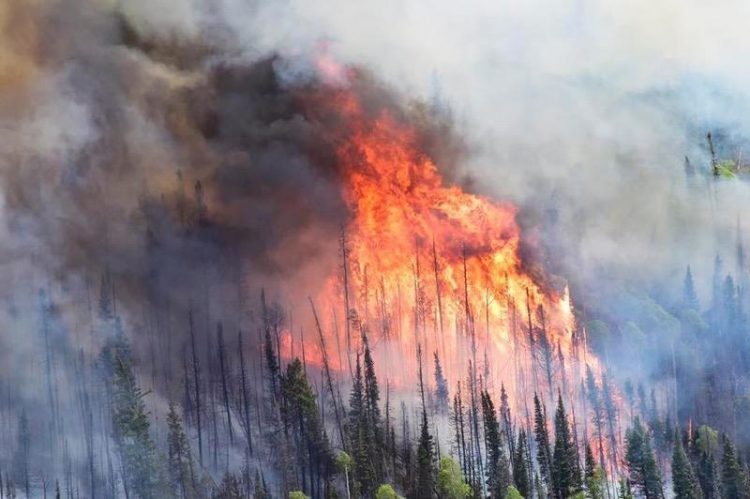September 11, 2020
Evans School interim dean receives $2M NSF grant to study ‘megafires’

Part of the Fishlake National Forest in Utah is ablaze during a prescribed burn.Kreig Rasmussen/USFS
Alison Cullen, professor and interim dean of the Evans School of Public Policy & Governance at the University of Washington, has received a $2 million grant from the National Science Foundation to study simultaneous “megafires” and the future management of wildfire risk.
Cullen will lead the project team, which includes researchers from the University of California, Merced and the National Center for Atmospheric Research, beginning this fall. The team is comprised of specialists in decision science, climate science, statistics and fire science, and will collaborate with tribal and government land-management agencies.
The project focuses on “megafires,” those that burn more than 100,000 acres and that, in the late summer of 2020, have wreaked havoc across the West. The simultaneous occurrence of such fires can strain firefighting resources and cause massive damage.
Cullen said her research will examine projections of future wildfire scenarios and the drivers of megafires, so as to inform future risk management planning.
“As Washington’s wildfire season has lengthened, with increasing numbers of simultaneous megafires, traditional regional sharing arrangements for firefighting resources are stretched to the breaking point,” Cullen said. “Right now Washington is competing for scarce resources with Oregon and California, who are also experiencing surges. Prioritizing and implementing prescribed burns and other approaches to clearing built-up fuel has become increasingly urgent in order to reduce the risk to individuals, property and natural resources.”
The research team will focus on two questions: How will climate change alter future patterns of wildfire, particularly concurrent megafires? And what implications does climate change hold for risk management decisions?
The work is expected to inform future land use and management decisions as well as fire-suppression policies.
For more information, contact Cullen at alison@uw.edu.
Adapted from material from the Evans School of Public Policy & Governance.
Tag(s): Alison Cullen • Evans School of Public Policy & Governance







 User Center
User Center My Training Class
My Training Class Feedback
Feedback













Comments
Something to say?
Log in or Sign up for free